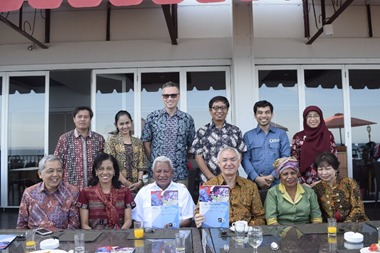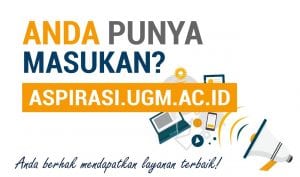The collaboration between Bachelor of Fish Product Technology (BFPT) Universitas Gadjah Mada (UGM) and University of Otago New Zealand through CARED Program was carried out on 2015-2018 with the topic was “Women Empowerment through Sustainable Fisheries Products Development in Border Area of East Nusa Tenggara-Indonesia and Timor Leste”. CaRED (Community Resilience and Economic Development) program had been developed under the support of Partnership Arrangement (PA) between New Zealand Ministry of Foreign Affairs and Trade (MFAT) and Universitas Gadjah Mada (UGM) to contribute to sustainable development in Indonesia, including its human resources and capacity.
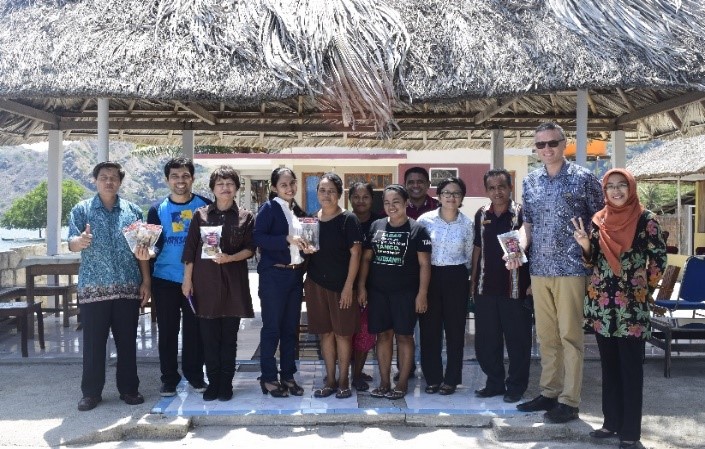
East Nusa Tenggara was a potential area of fish resources. The increasing of fish resources from 2013 to 2015 had become an important issue, because the increasing results was not accompanied by increasing of community capacity, so many fish that could not be utilized finally wasted in vain during the season. Fresh fish was very easy to deteriorate, it was causing the need for diversification of fishery products that had long shelf life and preferred by consumers. The development of fish processing in East Nusa Tenggara, particularly in the Timor district was promising to be developed. Based on resource potential and strategic position of Timor District which was located close to the province capital and its neighbors Timor-Leste, it could be a strength in distribution and market opportunity to develop fishery products with a strong institutional capacity and to increase the participation of the community. Developing fishery products with a strong institutional capacity and enhance the involvement of the community, especially women in the processing of fishery products to empower the community to improve the prosperity and eradicate poverty are critical.
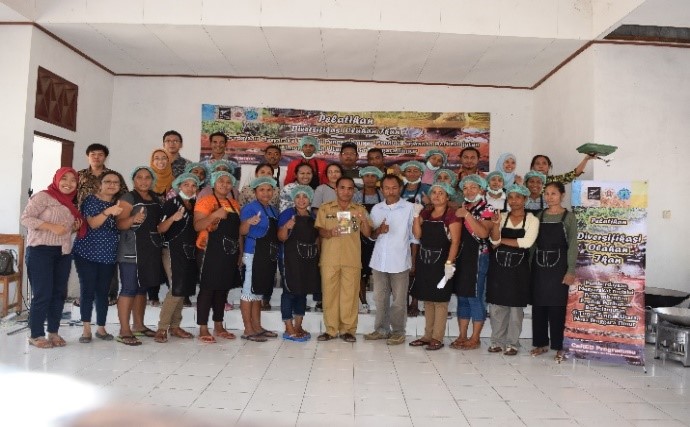
Some programs in this project was divided into several group activities, such as community development, research, training, workshop and technical assistance. The activities divided into three years. The first year focused on the exploration of potential fisheries resources and human resources to select raw material and potential community to be assisted. At the last first year, the program established small business groups and made marketing initiation. The second year focused on increasing women participation, established fish processing network and production scale up. The third year focused on program transition to local government, local university, and local community. The intended outcomes of the program were increasing capacity of women’s group by assisting to get home industry certification, increasing capacity of local community by developing local potency of Timor Tengah Utara, and Increasing capacity of fisheries product production from targeted woman group. The activities not only directly focusing on the women group development but also supporting the local government ((Fisheries and Marine Affairs Timor Tengah Utara Regency), local university (Universitas Timor) and other prospective stakeholders that can work in line with the program and establish cooperation among the academic, beneficiaries, government, and industry. The University of Otago also contributed, especially in improving product quality, nutritional value, and community development. Prof. Indrawati Oey and Fiona Nyhof (from Otago) came to the location in 2016 and 2018. There were also community service activity of UGM students that held in 2017 and 2018, with around 40 students for each.
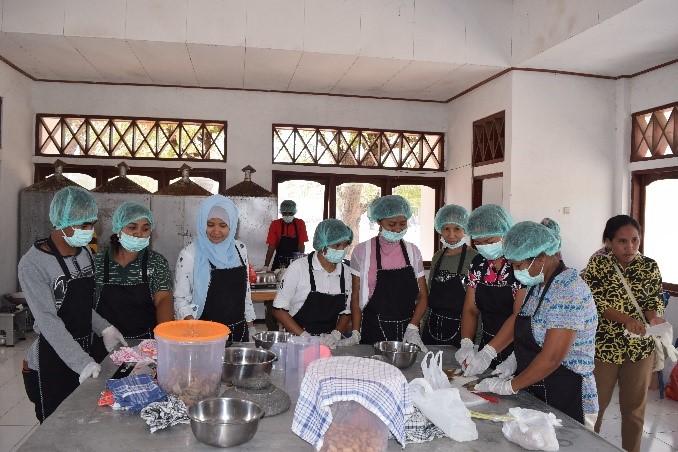
The outputs of the project were formation of four women groups at Timor Tengah Utara that produced fisheries products (fish floss, crispy fish, fried-fish meatball, fish crackers, fish skin cracker, fish jerky); some training modules; Home Industry Certifications; Memorandum of Understanding (MOU) between Universitas Gadjah Mada and Universitas Timor ; MOU between UGM and Timor Tengah Utara District; and publication on international proceeding.
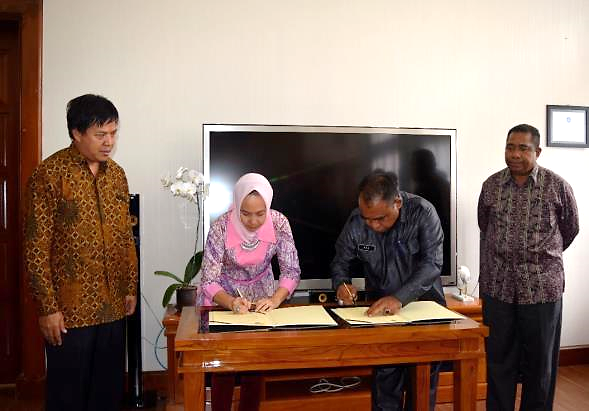
There were many exit strategies after the programme was finished, i.e. the commitment from local government and the local university to support and to continue the program that declared in MOU between UGM, Universitas Timor, and Timor Tengah Utara Government that has signed on March 2017. In addition, with home certification, it is expected that the fishery products production by the women’s group will continue even though the program has finished.
